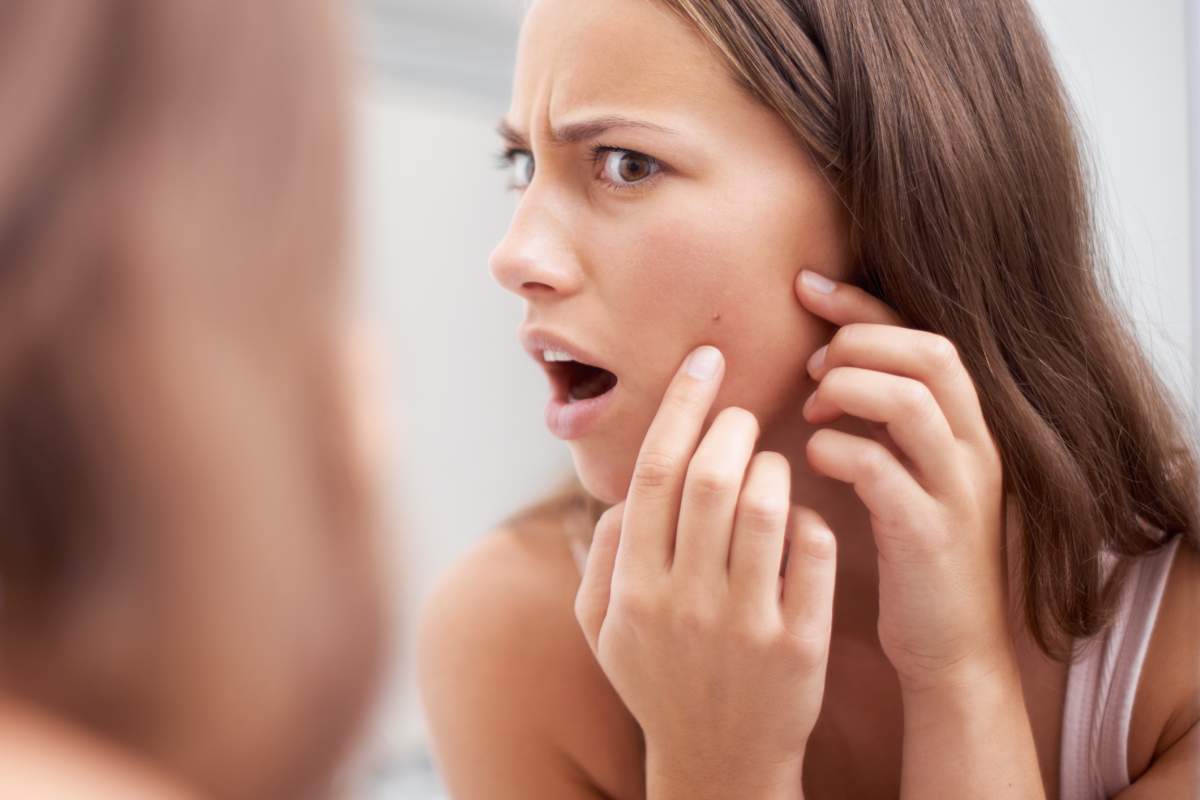Do you know how to tell if someone is eating a healthy and well-balanced diet? It’s easy – it’s written all over his or her face.

Skin breakouts and acne can be the result of a list of factors, but one factor that often sticks out – and one that is easily fixable – is poor diet.
READ MORE: 7 signs you might be magnesium deficient – and why it’s important you’re not
According to dermatologist Dr. Lisa Kellett, the foods we eat can have an impact on the quality of our skin. In fact, by making conscious choices to eat foods rich in certain vitamins, minerals and other nutritional properties, it’s possible to maintain a near flawless complexion.
The reason the two are linked together, Kellett says, has to do with the structure of the skin.

“The skin has scaffolding substance, which consists of collagen and elastin, and then there’s this substance that bathes it called hyaluronic acid,” she explains. “So what do you need to make the scaffolding of skin? You need to take in nutrients and you need things like your basic protein and vitamins and minerals to build that collagen.”

Get weekly health news
And the best way to get these building blocks, Kellett says, is through a diet rich in vitamins A, C and D – not to mention vitamin E, zinc and selenium, registered dietitian Andy De Santis adds.
“What people tend to forget is that your skin is essentially an organ, not necessarily that different from other organs like your heart or kidneys,” De Santis explains. “Just like your other organs, the health of your skin is at least partially influenced by the quality of your diet. The same vitamins, minerals and antioxidants that are healthy for your heart are also important to maintain the health of your skin.”
So what foods are rich in these components?
READ MORE: Signs you’re not getting enough calcium, vitamin A or vitamin D – and why it matters
Kale is a great source for vitamin A, and citrus fruits for vitamin C. Both rich in other very potent anti-oxidant compounds that are associated with good skin health and preventing skin aging, De Santis says.
Other foods that are high in both anti-oxidants and such nutrients include pecans, berries, artichoke, broccoli and spinach.
“Another dietary component that is of increasing interest is foods containing omega-3 fatty acids, which have anti-inflammatory properties,” De Santis says. “These fatty acids are considered essential because we must consume them from food, since our bodies cannot make them.”
Plant-based sources of omega-3 fatty acids include walnuts, ground flax and chia seeds. Animal-based sources include trout, sardines and salmon.
As for foods that may impact your skin for the worse, De Santis says to stay away from foods that are high on the glycemic index. These include short grain white rice, white bread, cookies, crackers, instant oatmeal and corn flakes.
“These foods cause rapid and significant rise in our blood sugar levels and there is some evidence to suggest this can contribute to acne issues,” he says. “Although the evidence is not as strong, there is a potential connection between dairy intake and acne as well.”








Comments